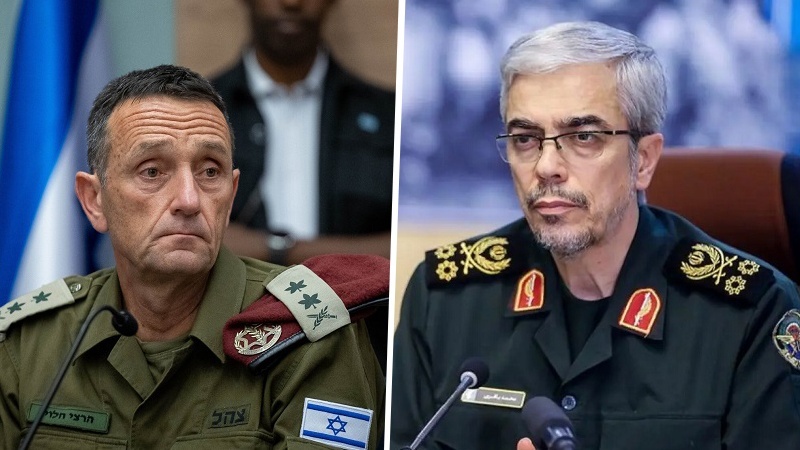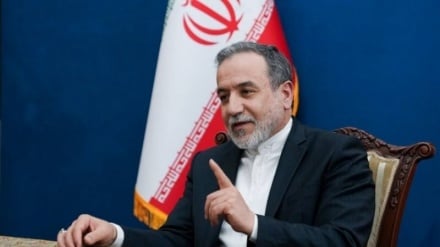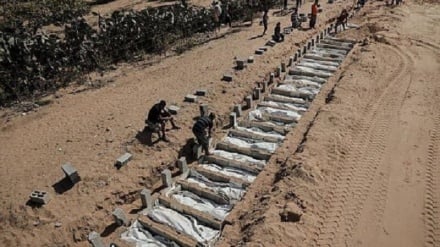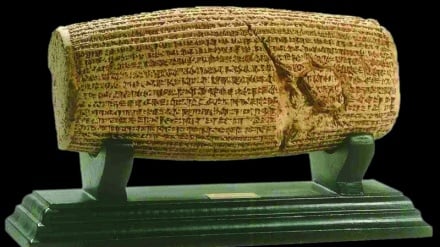Why can't Israel engage in conflict with Iran? Four brief points
-

R: Major General Mohammad Bagheri, Chief of Staff of the Iranian Armed Forces - L: Herzl Halevi, Chief of Staff of the Israeli army
Pars Today- Iran has achieved a kind of regional alliance in recent years by expanding network-based and people-centered interactions with indigenous communities in the region in Palestine, Lebanon, Syria, Yemen, and Iraq, which act unitedly against Zionist-Western threats.
Note from the press - Israel's attack on Iran on Saturday provided another opportunity to demonstrate Iran's might and strategic development in the region. This matter not only shows Iran's military power but also symbolizes a cultural-civilizational resistance that relies on deep historical ties and Islamic-Iranian beliefs, giving Iran an identity beyond geographical borders.
In this context, several main points can be considered, which are mentioned in this article from Pars Today:
Iran's historical-civilizational identity
Iran's power in these confrontations is not based solely on military power; Rather, it has its roots in a historical and cultural identity that is linked to Islamic beliefs, especially Ahl al-Bayt.
This identity has played a key role in Iranian domestic and foreign policies since before the Buyid era and especially since the Safavid era, distinguishing Iranian politics from other countries.
These civilizational ties also shape Iran's defense policies in such a way that they give it special capabilities even in the complex contemporary era.
Iran's deterrent power
Israel's attack on Iran's territory faced significant limitations and could not inflict serious damage on Iran's military and strategic depth. This shows Iran's high deterrent power, which is based on its extensive military bases and tactical capabilities. These capabilities have made Israel cautious in taking any military action against Iran and have imposed numerous limitations on it.
Regional power through aligned alliances
Iran has achieved a kind of regional alliance in recent years by expanding network-based and people-centered interactions with indigenous communities in the region in Palestine, Lebanon, Syria, Yemen, and Iraq, which act unitedly against Zionist-Western threats.
These alliances play an effective role with respect to deterrence as well as expanding Iran's power and the power of regional nations compared to the past.
Israel's fake nature
Israel, as an illegitimate regime, is forced to fight on multiple fronts and take cautious actions against Iran's strategic threats when faced with this level of historical identity, military power, and aligned alliances.
This situation not only shows Israel's operational limitations but also reveals the weakness and internal crisis in Zionism; A crisis that has plagued this regime since its inception due to the occupation of Palestinian lands and the creation of chronic tensions.
Key phrases: Iran and Israel, Iran's power, Axis of Resistance, Iran's military power, Israel's weakness
MG/UR


